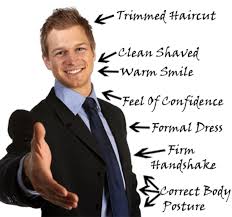Interviews have always remained a dreaded term for job seekers. Mention the word and it is known to launch a state of anxiety, sometimes panic in candidates. It is such a state that even the most successful of candidates or exam toppers are not able to crack the interview, so all their efforts to get a dream job, go in vain.
Inter + View :
The word interview may be interpreted as Inter + View. Inter is a prefix meaning between, mutually or together. View means the way of seeing something or an opinion. During the interview, the potential employee gets a view of the employer and vice versa. The aim is to see you as a person, a human being and make an assessment based on the views that you express and the signs that you carry with yourself. Hence, a truthful projection of your real self often pays dividends. To reach the altar of the interview, the first step is to prepare a resume. A resume gets you to an interview, while the interview gets you the desired job.
Resume:
Your resume should be neat and factual. Remember that when you apply, your resume is very likely to be parsed by software for keywords. So you stand a better chance if you include the necessary keywords in skills and competencies. Don’t try to falsify facts on our resume that might be very easy to decipher during the course of the interaction. You don’t want to get into an embarrassment if you’re asked a question on your hobby because you thought it was cool, but know nothing about it.
Appearance:
Your knowledge being what it is, a special attention to appearance is noteworthy as a significant part of the interview. When you appear for the interview, you should be well dressed. This means, that you need not get designer wear to impress, but neat, crisp, comfortable attire is a must. Avoid displaying your love for brands or your net worth too overtly. Pay attention to your shoes and polish them before you appear for the interview. Wearing low waist jeans, cargo pants, latest Bollywood hairstyles are an absolute no-no, unless you’re appearing for a role that demands you to do that. Women should avoid overdoing makeup and wearing strong perfumes. Formal attire works best that lets the interviewer focus more on your work and not be distracted.
Interview etiquettes are even more important. Some of the tips are as under:
• When you enter the interview room, do not shuffle your feet and walk. Avoid wearing shoes that your interviewer can hear before they see you.
• Be polite with a smile and a greeting. Your handshake should only come to an extended hand and should be firm not bone crushing.
• Always maintain eye contact. If you are in a room with multiple interviewers, always make it a point to look at the person who is talking to you and answer back to the group.
• Focus on the right things. Avoid staring at just one person or at one thing on a person.
• In a situation where one interviewer sits behind you on a sofa, and asks you a question, it is all right to tilt the chair to face the person obliquely.
• If you wish to sit cross-legged, you may do so, but bear in mind that you don’t rock the table.
• Avoid shaking your legs while you talk or fiddling with any objects in your hand or folding your arms close to your chest.
• Do not approach the interview after a smoke, or chewing tobacco.
• If asked about beverages, please indicate your choice clearly. Avoid answering ‘whatever’. Sip your beverage without a noise or any other action like blowing into it or dunking a cookie etc.
• Ask questions about the company, about role. It shows that you are an interested worker. A right fit for a role is beneficial both for the company and the candidate.
Language:
One of the problems candidates may face is the use of the spoken language for the interview. India is a totally linguistically diversified country, with over 22 languages and 720 dialects. It is therefore not strange that a language barrier exists when you appear for an interview. Most companies would conduct interviews in English language only. Interviewers who are trained to look beyond language, if the role does not demand so, would have the interaction without a problem.
As compared to the private sector, the acceptability of other languages is more in the public sector. In government job interviews, the interviewer doesn’t give too much consideration to the language; questions are generally asked in both languages. So, candidates not comfortable with English language can easily represent themselves to the interviewer.
So flaunt your skill, be confident and step out to win over the world!



Nice, this information will help me a lot in my interview…. thanks..
This website is very informative…